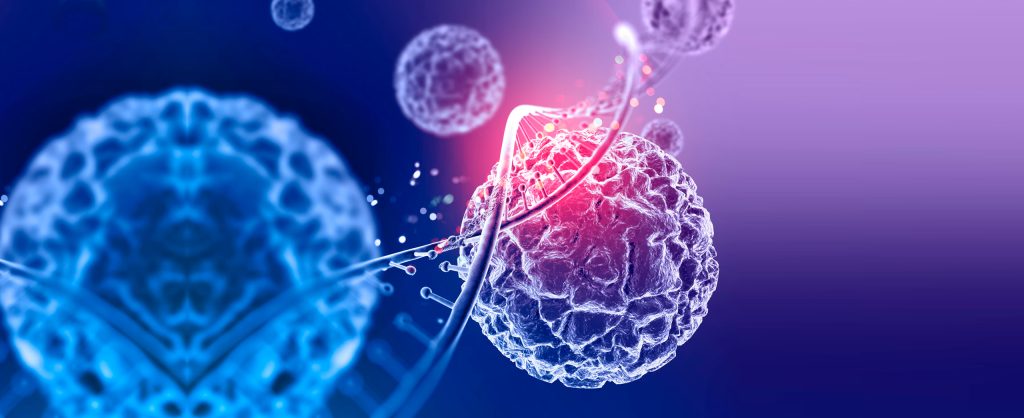Lynn Fraumeni syndrome (LFS) is a rare inherited disorder predisposing to cancer that affects 1 in 300,000 people worldwide. Its biggest problem lies in the extreme difficulty in diagnosing and recognizing the first signs of the disease, since it is quite complex and multifaceted. It can cause different types of cancer at any age, regardless of gender or lifestyle.

Due to the wide range of symptoms associated with DES, it is often not diagnosed until it is much more advanced, often after other types of cancer have already been diagnosed. One of the challenges faced by those affected by this disorder is recognizing possible early warning signs, such as non-cancerous tumors, bone fractures due to weakened connective tissues, red eyes and vision problems caused by capillary fragility problems. , anemia, and flu-like symptoms due to a weakened immune system and others that may seem mild enough not to require medical attention, at least right away
It is important that people with LFS – and their families – are aware that this disorder exists and that it requires immediate medical attention if any unusual abnormalities occur, as early detection of the condition can save lives.
One of the best ways to do this is through regular checkups where doctors can watch over time for any changes in physical health that could lead to more serious diseases, such as cancer.
Early diagnosis can significantly increase the chances of success of treatment options, so patients should always stay vigilant, but also seek professional help whenever necessary; being knowledgeable about SLA will increase your overall effectiveness in combating it – knowledge is power!
Lynn Fraumeni syndrome (LFS) is an inherited disease that carries a high risk of certain types of cancer. The exact cause of the syndrome can vary, but it usually involves mutations in specific genes known as TP53, which can be inherited from either parent or acquired throughout life.
Currently, there is no cure for DES; however, there are several treatments to help reduce symptoms and control the risk of cancer associated with this disorder.
Treatments to help reduce symptoms
Surveillance:
Periodic monitoring of a person’s health through physical examinations and medical imaging tests, such as ultrasounds, X-rays and mammograms, can help detect certain cancers early and improve the chances of survival. People with DES should also be monitored by a primary care physician for any changes in their general state of health, such as fatigue, weight loss, or changes in appetite.
Genetic Counseling:
Genetic counseling may be recommended to determine if family members may have inherited TP53 gene mutations from a parent diagnosed with SLE. Such information can enable family members to make informed decisions about their health care options and take steps that may reduce their own cancer risks.
Chemoprevention:
Some oncologists recommend chemopreventive strategies, such as taking low doses of nonsteroidal anti-inflammatory drugs (NSAIDs) such as aspirin or ibuprofen long-term to minimize the chance of developing certain cancers due to SLE. In addition, some studies suggest that taking antioxidant supplements, such as omega-3 fatty acids, may reduce the risk of inflammation-related cancer in people with DES; however, more research is needed before recommendations can be made about its use as a treatment option…
Detection and treatment of cancer:
In addition to the surveillance checkups mentioned above, research suggests starting regular checkups at an earlier age than recommended by most guidelines, so that any emerging tumor can be detected quickly while it is still small enough to facilitate its removal or the success of the treatment even after diagnosis. Chemotherapy or other specialized treatments, such as gene therapy, specifically adapted to the type of cancer present, will depend on each specific case, but could also be considered depending on the severity/ progression of disease state…
Global management through lifestyle modifications (eg, exercise regimens, nutritional counseling) along with ongoing support from physicians and family members also play an important role in cases of Lynch Fraumeni syndrome, leading to allows affected people to continue leading active and productive lives despite the increased risk factors associated with this disease.
Lynn Fraumeni syndrome can be a difficult disease to treat, but there is hope for those who suffer from it. One promising treatment avenue that has been gaining popularity of late is the combined approach of graviola and ozone therapy.
Graviola, also known as soursop or custard apple, is a tropical fruit rich in antioxidants and other compounds known for their anti-inflammatory properties. Studies have shown that regular consumption of this delicious fruit can help reduce the severity of many chronic diseases such as arthritis, lung cancer, breast cancer, type II diabetes, and even Lynn Fraumeni syndrome (LFS). . In particular, some research suggests that Graviola consumption helps weaken SLA cells by reducing their mutation rate.
Ozone therapy has also recently become popular among those affected by Lynn Fraumeni syndrome and other ailments. Ozone works by causing oxidative stress to cells in the body, which helps reduce inflammation and cell death, while stimulating tissue regeneration so that damaged parts can heal more quickly. Some studies show that combining ozone therapy with other treatments, such as chemotherapy, can produce even better results than either of them alone, making it an extremely powerful tool for treating serious conditions such as SLA.
The combination of Graviola and ozone may be beneficial in relieving some of the symptoms associated with Lynn Fraumeni Syndrome, especially when used in conjunction with conventional medicine such as drugs or surgery; however, more research is needed to confirm the actual efficacy of this form of alternative medicine for this particular disorder.
In general, the use of Graviola Prozono can have enormous benefits in the treatment of Lynn Fraumeni Syndrome. The ingestion of Graviola Prozono as a medicinal agent, serves as an interesting and potentially useful piece for those suffering from this syndrome who are looking for additional relief.
Thanks to its anti-inflammatory properties, its ability to boost immunity, its antioxidant components, and its ability to improve digestion and heart health, Graviola Prozono has the potential to greatly improve the quality of life for people suffering from Lynn Syndrome. Fraumeni.
All things considered, it is safe (with the proper dose), natural, and relatively cheap compared to other potentially risky interventions; therefore, it can serve as an ideal alternative treatment option for those who struggle with their symptoms.





